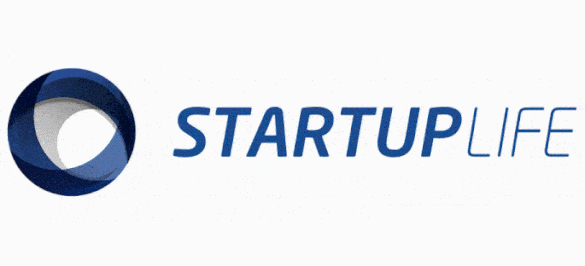By Paola Martins, Lucas Euzébio and Layon Lopes*
Brazil is a country known worldwide for its creativity and innovative inventiveness. Not by chance, brazilian tech companies have been catching foreign attention due to several factors.
The aforementioned innovative capacity makes Brazilian tech companies attract the attention of the international market. Companies competing or operating in similar markets, or even experienced investors seeking to diversify their business, are increasingly making acquisition, investments and partnership transactions with Brazilian tech companies.
A proof of that is the fact that more and more foreign players are making investments in Brazilian tech companies, which was even addressed recently by the Wall Street Journal.
In this scenario, entrepreneurs, investors, partners or even potential buyers start to ask themselves which is the most suitable form to seek legal consultancy in a Brazilian tech company.
To do business outside their own country, regardless of the destination, even in the technology market, requires that the agent endeavors to minimally understand the legal functioning of the organizations and institutions in the location where they intend to be present.
One of the most strategic supports in this regard is provided by legal experts.
When doing business with Brazilian tech companies, it is common for foreign agents to be advised on how business works in the country, through specialized legal advice.
Unfortunately, Brazil precedes its reputation of being a bureaucratic country that is regulated by a large amount of over complicated laws, which makes relying on appropriate technical legal support even more strategic and essential.
The world is aware of that, and so is the Brazilian government. In order to address this problem, in the last years there were many legal initiatives to debureaucratize commercial, corporate, digital and startup laws. That is the case, for example, of the law called “Marco Legal das Startups” (legal framework for startups).
Although the brazilian government, through its legislators, has laudable intentions, what is perceived, in the eyes of foreign agents, is a certain volatility, with constant legal changes and creation of new regulations, generating the need for continuous legal support when doing business in brazil, in any sector, including the technology sector.
Especially in the technology sector, it is noticeable that legislators, regulatory bodies and the Brazilian judiciary often change their interpretations and positions according to the evolution of technology and the advancement of the effective understanding of the technologies in question.
The digital and technological law in brazil, although seriously discussed by jurists, is still in constant evolution and improvement.
Taking these into account, is of paramount importance to seek for a Brazilian legal consultancy that is able to attend specifically to the needs of a Brazilian tech company, and to navigate through all the levels of laws that are applicable to its sector.
However, the agent should be aware that two different types of legal support are commonly practiced in the sector: internal legal support (also called “in house” legal consultancy”) and external legal support (by outsourced law firms).
How to identify, therefore, the best form of legal support for the foreign agent who intends to do business in Brazil and relate to Brazilian technology companies, as a partner, investor or business partner? it is necessary to get to know the forms of legal consultancy normally used in the area.
Firstly, a distinction must be made between internal legal advice and external legal advice. It should be noted that in both scenarios, legal advice must be provided by bachelors in law duly qualified for the exercise of the provision of legal advice services by the bar association of brazil, that is, by lawyers.
Thus, the following differentiates the activities of a in house legal consultancy from an outsourced law firm:
- In house legal consultancy: legal advice provided by lawyers and interns supervised by lawyers, hired directly by the tech company in question, to work within the tech company, in most cases on an exclusive basis. In this scenario, the lawyer’s only client will be the tech company that hired him/her, dedicating his/her hours of service only to providing legal advice on its needs. In this way, the lawyer has the possibility to understand in depth the product or service developed, identifying with greater certainty and agility the risks and legal potential of the business.
- Outsourced law firm: legal advice provided by lawyers and interns supervised by lawyers, who compose an external law firm. The tech company hires consultancy from the law firm, and not from the person of a lawyer directly. In this scenario, the lawyer will have several clients in the office where he practices, the tech company being one of the clients in its portfolio. When hiring a specialized law firm, there will be greater capillarity in the performance of legal advisory services, since a greater number of lawyers will be linked to the project through the firm, thus offering agility, in addition to specialty, since it is common for the firm to have other clients with the same profile and demands, so that it already has expertise in advising needs similar to those existing in the contracting technology company.
It can therefore be seen that both formats have certain advantages, and that counting on a legal consultancy is essential for any tech company to succeed.
With that in mind, it is necessary to diagnose the best form of legal consultancy to apply in tech companies in Brazil, according to the profile of the company: In house legal consultancy or outsourced law firms? Is it better to hire lawyers who will be in the day to day of your company or a firm that will provide support in specific and determined issues?
There is no right or wrong answer to these questions, and will depend on factors such as the level of organizational and financial maturity of the tech company, the investment it wishes to commit to legal advisors, strategic planning and the complexity of the legal demands existing in the tech company.
The key to solve this issue is to correctly identify the needs and demands of the tech company. If, on the one hand, the in-house legal department will know the company’s operation, employees, structure, routine, and basic needs, on the other hand, outsourced specialized law firms will offer more man power, expertise, and experience for the unfolding of complex operations such as partnerships, joint ventures, restructuring of economic groups, and M&A events.
Furthermore, while the internal legal department will have only one client, the tech company, an outsourced legal firm will not be able to guarantee such exclusivity, since it will need to attend not only one, but several companies.
However, the reasoning that must prevail when making this assessment should not be governed by the logic of scarcity, that is, of having to choose solely and exclusively the benefits of one of these types of legal advice.
In fact, it would be foolhardy to deprive the company from enjoying the benefits it could have, if, for example, an internal legal department was available for most of the routine matters, and an external consultancy was hired to more specific and difficult-to-manage business.
This is not only possible, but often desirable. There is, therefore, a third possible way: the option for the technology company to rely either on in-house legal advice or on an externally contracted law firm.
Considering the in-house legal structure conflicting with outsourced legal advice is a fallacy which most often focuses only on the personal interests of the professionals in question, and not the needs of the company.
The premise number one of a legal team and consultancy, whether internal or external, must always be part of the development, growth and success of the business of the tech company.
A legal consultancy that has a customer-centric culture has this vision very clearly in its work, and will seek to make joint efforts through communicative and cooperative interfaces between internal and external legal consultancy.
Some of the most solid tech companies in Brazil count on both internal legal consultancy and outsourced firms to increase the growth and improve the operation in many levels. That is the case, for example, of Meta, a big tech company from Rio Grande do Sul, that finds important to have the two models of legal consultancy, and benefits with the results of this strategy, being, according to the Anuário Informática Hoje, for two consecutive years, 2020 and 2021, one of the 10 fastest growing companies in the technology segment in Brazil.
Another interesting example can be given by the Safepar group, one of the largest players in the digital certification market, which has long-standing internal legal support, and, during its expansion and consolidation of the business, opted for the additional hiring of external legal support from a law firm.
In conclusion, given the complex scenario of the Brazilian legal system, including in the business area, it is of paramount importance that foreign agents wishing to maintain business relations with Brazilian technology companies seek to identify the form of legal advice that best meets their needs. The marriage between in-house legal consultancy and outsourced law firms has the potential to increase the growth of the tech company, and also be a great help in the aim to consolidate its operation in the market.
*Layon Lopes is the CEO of Silva | Lopes, Euzébio is a partner and Paola Martins is a member of the Silva | Lopes team.











